President Obama recently stated that Private Manning’s conditions comply with the Pentagon’s basic standards. Given that those standards apparently permit Private Manning to be subjected to plainly unconstitutional conditions, it is clear that the Department of Defense must adapt its standards to meet the demands of the constitution. - American Civil Liberties Union
“AGAINST VIOLENCE UNDER THE CLOAK OF CARE”
Second open letter to the president of the American Medical Association
Dear Dr. Wilson,
There has been a disappointing and disturbing silence in answer to the registered letter I sent to you and the American Medical Association you represent. In this letter, sent on February 23rd, 2011, I asked the AMA to take all measures in their power to stop the abuse of medical terminology and the medical profession assisting in torture. More specifically, I asked you to speak out against the sale of the torturous ‘prevention of injury’ procedure used on Bradley Manning to the greater public as a form of justified “care”.
We know from professional literature on extreme forms of abuse that it is attractive to many perpetrators to shift labels to conceal the real nature and seriousness of their actions. These relabeling techniques help them to shrug off responsibility, to maintain their position in society and to further disempower their victims by confusing them (see professional literature on e.g. the phenomenon of gaslighting). The following three articles show us how important it is to continue to correctly label the treatment of Bradley Manning as torture and as inappropriate:
Pioneers of Torture
The National Shame of the US Military's 'Slow Torture' of Bradley Manning
 Vancouver native Marc Emery, was today denied a transfer to Canada to serve the final four years of his five year sentence. Emery's lawyer Kirk Tousaw said US authorities told his client that the US government refused his transfer on April 6 despite a recommendation from his sentencing judge that he be transferred and despite his meeting all the requirements, due to the “seriousness of the offence” and “law enforcement concerns.”
Vancouver native Marc Emery, was today denied a transfer to Canada to serve the final four years of his five year sentence. Emery's lawyer Kirk Tousaw said US authorities told his client that the US government refused his transfer on April 6 despite a recommendation from his sentencing judge that he be transferred and despite his meeting all the requirements, due to the “seriousness of the offence” and “law enforcement concerns.”
Marc's serious offense is selling marijuana seeds by mail to the US, a serious offense on the US side of the border, where the law equates one marijuana seed to one plant to 100 kilos of marijuana, but almost never prosecuted in Canada where seed shops are common, and the last conviction was against Emery in 1998 when he was fined $2,000. In fact on Wednesday, an Ontario court struck down Canada's laws that prohibit the possession and growing of marijuana as unconstitutional. The judge suspended his ruling for three months, to give the federal government time to appeal or respond; if they are unsuccessful, marijuana will be legal to possess and cultivate in Ontario in three months, which will set precedent for all of the other provinces. That would explain why the US has "law enforcement concerns," as Emery in Canada would have no chance of being in jail, much less serving repeated solitary confinement. According to the US - Canada Extradition Treaty, extradition applies only in cases where the “offenses are punishable by the laws of both Contracting Parties by a term of imprisonment exceeding one year.”
 The National Strategy for Trusted Identities in Cyberspace (NSTIC), which some believe could establish and require Internet users to have ID on the Internet, was unveiled today at the US Chamber of Commerce. NSTIC aims to establish "identity ecosystems," what the National Institute for Standards in Technology describes as a "a user-centric online environment, a set of technologies, policies, and agreed upon standards that securely supports transactions ranging from anonymous to fully authenticated and from low to high value."
The National Strategy for Trusted Identities in Cyberspace (NSTIC), which some believe could establish and require Internet users to have ID on the Internet, was unveiled today at the US Chamber of Commerce. NSTIC aims to establish "identity ecosystems," what the National Institute for Standards in Technology describes as a "a user-centric online environment, a set of technologies, policies, and agreed upon standards that securely supports transactions ranging from anonymous to fully authenticated and from low to high value."
Secretary of Commerce Gary Locke delivered the following remarks:
"I'm optimistic that NSTIC will jump-start a range of private-sector initiatives to enhance the security of online transactions. This strategy will leverage the power and imagination of entrepreneurs in the private sector to find uniquely American solutions. Other countries have chosen to rely on government-led initiatives to essentially create national ID cards. We don't think that's a good model, despite what you might have read on blogs frequented by the conspiracy theory set. To the contrary, we expect the private sector to lead the way in fulfilling the goals of NSTIC. Having a single issuer of identities creates unacceptable privacy and civil liberties issues. We also want to spur innovation, not limit it. And we want to set a floor for privacy protection that is higher than what we see today, without placing a ceiling on the potential of American innovators to make additional improvements over time. "
What might this mean for the Internet as citizens of the world know it today? As the US government, in cooperation with the private sector, works to preserve cyber infrastructure or networks that it considers to be “strategic national assets,” how might this protection of assets fundamentally alter key characteristics of the Internet, which many have grown to appreciate? In the age of WikiLeaks and Anonymous, in an era where the US government has been unable to prevent the Chinese government and military from stealing usernames and passwords for State Department computers, it seems that this strategic plan could transform the Internet into a realm that requires you to prove your identity with an approved and issued identification card every time you move in to a new website.
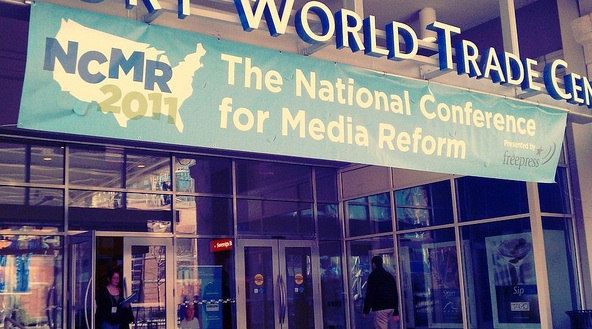 A National Conference for Media Reform (NCMR) put on by Free Press took place over the weekend. Thousands of attendees gathered to discuss the state of media and democracy in the US and how best to fight for better media. While the discussions tended to be general conversations on policy and politics, social justice and movement building, journalism and public media, the role of culture and art in media making, or technology and innovation, one subject was continuously mentioned in panel sessions: WikiLeaks.
A National Conference for Media Reform (NCMR) put on by Free Press took place over the weekend. Thousands of attendees gathered to discuss the state of media and democracy in the US and how best to fight for better media. While the discussions tended to be general conversations on policy and politics, social justice and movement building, journalism and public media, the role of culture and art in media making, or technology and innovation, one subject was continuously mentioned in panel sessions: WikiLeaks.
It would be a stretch to suggest this if it weren’t for the fact that at the “Media and Corporate Power: Beating Back the K Street Juggernaut” panel The Nation’s Katrina vanden Heuvel mentioned an individual in Russia, who has drawn inspiration from WikiLeaks, and now plans to publish corporate documents from Russia to his own “leak portal” website. Vanden Heuvel wondered why media reformers don’t get their own “leak portal” website established for the sole purpose of giving whistleblowers a place to turn and having a central location for Americans to see the truth about corporate power in the US. Following her remark, Bob Edgar of Common Cause thought it important to add the US should stop torturing or abusing the soldier alleged to have leaked information to WikiLeaks, Bradley Manning.
The panel had nothing to do with WikiLeaks except for the fact that the issue of corporate power and transparency is critical to the story of WikiLeaks. The organization’s commitment to exposing secrets makes the organization an enemy of corporations, especially any corporation that has a well-established relationship with the political class in Washington and has records to prove just how they mutually work together to subvert democracy.
An organization like Free Press may prefer to not elevate WikiLeaks or any stateless news organization like it too much by making it a component of their agenda. That is understandable given the fact that the Knight Foundation, prior to the release of the Iraq War Logs and the beginning of Cablegate, awarded twelve groups with a “News Challenge” grant but did not award WikiLeaks a grant despite the organization’s request to spend about a half a million dollars “over two years to bring its anonymous method of leaking documents to local newspapers.” But, no organization in the world has exposed the fault lines in media and democracy like WikiLeaks has in the past year.

In a new announcement from Twitter Profile: @USDayofRage (currently 1,915 followers) via Twitlonger, the movement demands reforms to abate corruption in US elections:
Corporate influence corrupts our political parties, our elections, and the institutions of government.
Bought by hard and soft dollars, disloyal, incompetent, and wasteful special interests have usurped our nation’s civil and military power, spawning a host of threats to liberty and our national security.
We have had enough.
Legitimate government is born of the self-interest and will of the people expressed by its citizens in free and fair elections. It does not spring from a tyranny of corporate or royal patronage, or a system or ideology that runs counter to the aims of life.
The institutions of government were designed to protect the principles of our democratic republic and to serve the will of citizens.
Corporations, even those owned by foreign shareholders, use money to act as the voices of millions, while individual citizens, the legitimate voters, are silenced and demoralized by the farce.
Free and fair elections inspire good citizenship and public service, because they engage the intelligence and genuine good will of the American people.
They produce the kind of stewardship our nation desperately needs, because they ensure that citizens can influence their destiny, and make genuine contributions to society.
and fair elections remedy the myriad ills and abuses of a corrupt and illegitimate government, which prey on the resources and spirits of citizens. (These abuses and ills are listed on the official US Day of Rage twitter hash tag #USDOR.)
Vote for Bradley Manning in The 2011 TIME 100 Poll, here!
As of today, April 8, 2011, Bradley Manning is ranked at No. 39 out of 203 nominees for TIME Magazine's 2011 100 Poll. Julian Assange is ranked at No. 8.
The popular mag invites readers to: "Cast your votes for the leaders, artists, innovators, icons and heroes that you think are the most influential people in the world. The winner will be included in the TIME 100. Voting closes on April 14" (Source: TIME Magazine).

As WL Central reported on Tuesday, in an adjournment debate in the UK House of Commons on Monday evening, Henry Bellingham, parliamentary undersecretary at the Foreign and Commonwealth Office, confirmed that Bradley Manning acquired British citizenship at birth.
The video of the debate is now available here.
The opening argument of MP Ann Clwyd (Labour - Cynon Valley) is notable for emphasizing that Bradley Manning's citizenship is not the sole reason a government of laws should be concerned about his treatment. She had earlier raised the interpretation of the British Nationality Act with the foreign minister in committee and in the Commons, but in this address, she reminds the government of its commitment to speak out against human-rights abuses everywhere, regardless of the victim's nationality. She also asks for assurances that Manning's British family will receive UK consular assistance in their future attempts to visit him at the US Marine base at Quantico, Virginia.
Bellingham responds affirmatively on all three counts -- on the strict interpretation of the Nationality Act (with qualifications based on Manning's right to privacy), on the commitment of the UK government to make formal representations to other nations concerning human-rights abuses, and on the willingness of the government to assist Manning's family in their attempts to visit him.
Previous WL Central coverage of Bradley Manning
WL Central action page for Bradley Manning
The BBC first announced this morning that the High Court of England and Wales* has listed court dates of 12-13 July to hear Julian Assange's appeal against extradition from the UK to Sweden.
BBC reporter Dominic Hurst tweeted shortly after his first announcement that "Assange's appeal is against Judge Riddle's ruling that extradition to Sweden wouldn't breach his human rights," a summary repeated in this report from the Guardian.
Mark Stephens @markslarks, Assange's UK solicitor, then replied to a first question on Twitter from a WLC reporter: "dates correct. Detail wrong." When questioned further by another WLC reporter hoping for a lawyerly update, he tweeted: "will come when I return to the UK."
There is obviously some time for precising our understanding of what the appeal may entail. Parliamentary review of the European Arrest Warrant (EAW) is also expected in June [citation needed and welcomed].
* NB: Scotland's legal system has always been independent from that of England and Wales.
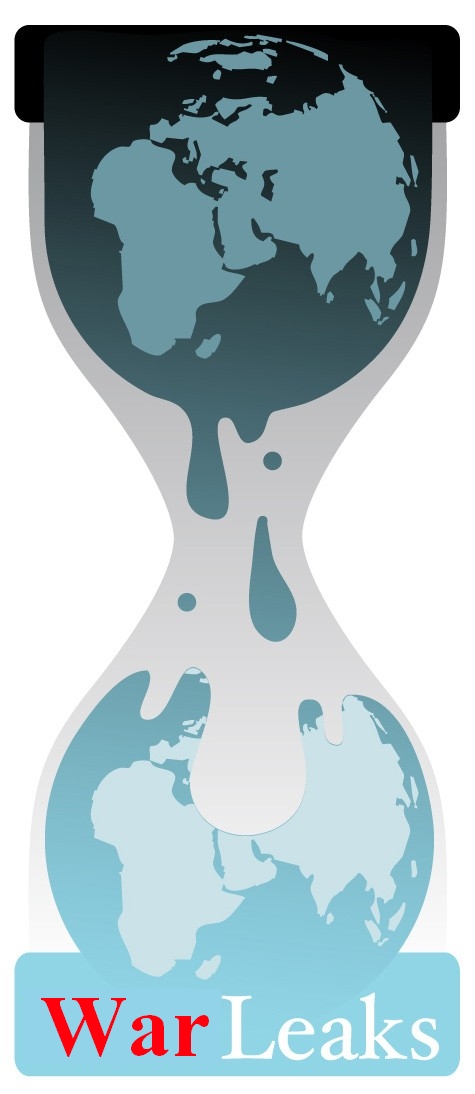 1. Introduction
1. Introduction
2. Resources for Collateral Murder
3. Resources for War Logs
2010 was, in many ways, the year of the WikiLeaks. Although the organization had been in operation for four years, and had published many high profile leaks, this was the year that WikiLeaks became a household name. Beginning April 2010, WikiLeaks released a succession of leaks apparently sourced from within the United States government, or military, and pertaining to the wars in Afghanistan and Iraq. WL Central's Kevin Gosztala investigated the War Leaks and produced this valuable summary and analysis of their extent and significance. This page is an overview and resource bank.
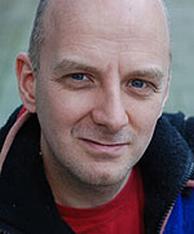 Update: Rop Gonggrijp writes on his blog: "It may be good if we all take a deep breath and get grounded a bit here. There are no new events other than the justice minister in The Netherlands providing rather obvious answers to questions from MPs. I really don’t think the minister giving perfectly predictable answers should be news. There is, as of yet, no indictment. Let alone an extradition request. I helped publish a video documenting war crimes. My lawyers and me have absolutely no idea what crime they could even charge me with. If they indeed want something from me, the prosecutors are likely facing the same problem.
Update: Rop Gonggrijp writes on his blog: "It may be good if we all take a deep breath and get grounded a bit here. There are no new events other than the justice minister in The Netherlands providing rather obvious answers to questions from MPs. I really don’t think the minister giving perfectly predictable answers should be news. There is, as of yet, no indictment. Let alone an extradition request. I helped publish a video documenting war crimes. My lawyers and me have absolutely no idea what crime they could even charge me with. If they indeed want something from me, the prosecutors are likely facing the same problem.
"So there may very well never be an extradition request, just a very long period of nothing much happening. Which doesn’t mean this isn’t something to worry about or keep a close eye on. But it’s probably not worthy of getting in a nationwide or even global frenzy over just yet."
Uri Rosenthal, Minister of Foreign Affairs in the Netherlands, responded to questioning from Green MP Arjan El Fassed by saying that he does not rule out extradition of Rop Gonggrijp (pictured left) to the US.
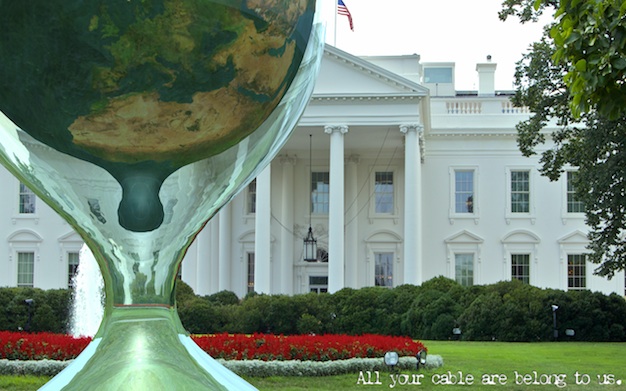 El País: La corrupción policial en Ecuador es generalizada (Police corruption is widespread in Ecuador)
El País: La corrupción policial en Ecuador es generalizada (Police corruption is widespread in Ecuador)
"La corrupción "es generalizada" en las filas de la Policía Nacional de Ecuador y quien fuera su comandante, Jaime Aquilino Hurtado, utilizó su poder como la máxima autoridad del cuerpo para extorsionar, acumulando así dinero y propiedades, facilitar el tráfico de personas y obstruir las investigaciones contra compañeros corruptos. (Corruption is widespread "in the ranks of the National Police of Ecuador and who was their commander, Jaime Aquilino Hurtado, who used his power as the ultimate authority to extort the police, accumulating money and property, to facilitate the trafficking and to obstruct investigations against corrupt colleagues.)"
Read more (Spanish) Google Translate
El País: El fiasco de las pruebas de la CIA (The fiasco of the CIA evidence)
"El CD Rom facilitado por Microsoft Corporation a la CIA con los correos electrónicos de varios sospechosos de enviar desde España suicidas a Irak contenía información explosiva, pero en los tribunales españoles no sirvió de nada. (The CD Rom supplied by Microsoft Corporation to the CIA with the emails of several suspected suicide bombers sent from Spain to Iraq containing explosive information, but in the Spanish courts to no avail.)"
 El País: "Los más buscados" por EE UU: el sandinismo antidemocrático y corruptor ("Most Wanted" by the U.S.: the Sandinistas undemocratic and corrupting)
El País: "Los más buscados" por EE UU: el sandinismo antidemocrático y corruptor ("Most Wanted" by the U.S.: the Sandinistas undemocratic and corrupting)
"El gubernamental e izquierdista Frente Sandinista de Liberación Nacional (FSLN), cuya revolución acabó en 1979 con la dictadura de Anastasio Somoza, prometió establecer la justicia social en Nicaragua, pero acabó siendo un movimiento corruptor, autoritario, que avasalló a la oposición y aceptó fondos del narcotráfico, según afirma un informe de la embajada de Estados Unidos en Managua. (The governmental and leftist National Sandinista Liberation Front (FSLN, Spanish acronym), whose revolution in 1979 ended the dictatorship of Anastasio Somoza, promised to establish social justice in Nicaragua, but ended up being a spoiler movement, authoritarian, who overpowered the opposition and accepted funds drug trafficking, according to a report from the U.S. Embassy in Managua.)"
Read more (Spanish) Google Translate
(Image Credit: Dali Rău)
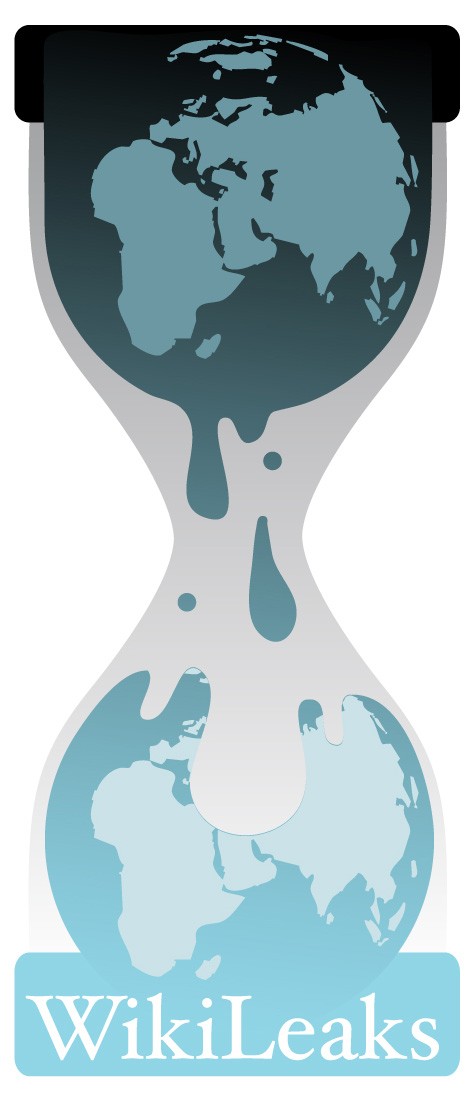 At the end of today's sitting, the UK Parliament at Westminster will debate the treatment of Bradley Manning, a debate that will be opened by Ann Clwyd (Labour-Cynon Valley).
At the end of today's sitting, the UK Parliament at Westminster will debate the treatment of Bradley Manning, a debate that will be opened by Ann Clwyd (Labour-Cynon Valley).
Clwyd has raised Manning's plight and the concern for him of her constituents in Wales before in committee and in the Commons, and has received considered and relatively positive responses from both the foreign secretary and the leader in the Commons, as we reported here. Manning's mother is a Welsh citizen of the UK.
No time is given for the start of the debate. It is scheduled to go on until 10:30 pm or for half an hour, whichever is later.
Via @GregMitch on Twitter.
 This is our first interview in a series of interviews with former Guantanamo Bay detention camp guards and detainees.
This is our first interview in a series of interviews with former Guantanamo Bay detention camp guards and detainees.
Several current and former U.S. soldiers have expressed interest in speaking publicly about their experience at Guantanamo: including a CIA psychologist, interrogators, guards, and medical personnel. They are disgusted with what they witnessed or took part in at Guantanamo, but declined my request for an interview, because they fear opening themselves up to prosecution by the US government, which required them to sign a Non Disclosure Agreement .
I was also told that many are afraid of being prosecuted for war crimes, since low level soldiers are often the ones who shoulder the brunt of punishment and backlash; whereas higher ranking officials seem to escape scrutiny completely.
Brandon Neely, has been a vocal critic of both Guantanamo Bay, and the war in Iraq. And he speaks from experience, since he was both a guard at Guantanamo during the the first six months the camp was open, and served in Iraq during the US invasion. In the course of his advocacy, he has offered testimony to the Center for Human Rights in the Americas, and appeared in numerous articles and on television programs, including a BBC program that recounts how he contacted two of his former prisoners on Facebook to express remorse for what he did. You can also find him, where I did, on twitter, @BrandonTXNeely.
*Apologies for the first seconds of poor audio quality.
Listen to Part 1 of 8 here
Transcript
 This is our first interview in a series of interviews with former Guantanamo Bay detention camp guards and detainees.
This is our first interview in a series of interviews with former Guantanamo Bay detention camp guards and detainees.
Several current and former U.S. soldiers have expressed interest in speaking publicly about their experience at Guantanamo: including a CIA psychologist, interrogators, guards, and medical personnel. They are disgusted with what they witnessed or took part in at Guantanamo, but declined my request for an interview, because they fear opening themselves up to prosecution by the US government, which required them to sign a Non Disclosure Agreement .
I was also told that many are afraid of being prosecuted for war crimes, since low level soldiers are often the ones who shoulder the brunt of punishment and backlash; whereas higher ranking officials seem to escape scrutiny completely.
Brandon Neely, has been a vocal critic of both Guantanamo Bay, and the war in Iraq. And he speaks from experience, since he was both a guard at Guantanamo during the the first six months the camp was open, and served in Iraq during the US invasion. In the course of his advocacy, he has offered testimony to the Center for Human Rights in the Americas, and appeared in numerous articles and on television programs, including a BBC program that recounts how he contacted two of his former prisoners on Facebook to express remorse for what he did. You can also find him, where I did, on twitter, @BrandonTXNeely.
 This is our first interview in a series of interviews with former Guantanamo Bay detention camp guards and detainees.
This is our first interview in a series of interviews with former Guantanamo Bay detention camp guards and detainees.
Several current and former U.S. soldiers have expressed interest in speaking publicly about their experience at Guantanamo: including a CIA psychologist, interrogators, guards, and medical personnel. They are disgusted with what they witnessed or took part in at Guantanamo, but declined my request for an interview, because they fear opening themselves up to prosecution by the US government, which required them to sign a Non Disclosure Agreement .
I was also told that many are afraid of being prosecuted for war crimes, since low level soldiers are often the ones who shoulder the brunt of punishment and backlash; whereas higher ranking officials seem to escape scrutiny completely.
Brandon Neely, has been a vocal critic of both Guantanamo Bay, and the war in Iraq. And he speaks from experience, since he was both a guard at Guantanamo during the the first six months the camp was open, and served in Iraq during the US invasion. In the course of his advocacy, he has offered testimony to the Center for Human Rights in the Americas, and appeared in numerous articles and on television programs, including a BBC program that recounts how he contacted two of his former prisoners on Facebook to express remorse for what he did. You can also find him, where I did, on twitter, @BrandonTXNeely.
 This is our first interview in a series of interviews with former Guantanamo Bay detention camp guards and detainees.
This is our first interview in a series of interviews with former Guantanamo Bay detention camp guards and detainees.
Several current and former U.S. soldiers have expressed interest in speaking publicly about their experience at Guantanamo: including a CIA psychologist, interrogators, guards, and medical personnel. They are disgusted with what they witnessed or took part in at Guantanamo, but declined my request for an interview, because they fear opening themselves up to prosecution by the US government, which required them to sign a Non Disclosure Agreement .
I was also told that many are afraid of being prosecuted for war crimes, since low level soldiers are often the ones who shoulder the brunt of punishment and backlash; whereas higher ranking officials seem to escape scrutiny completely.
Brandon Neely, has been a vocal critic of both Guantanamo Bay, and the war in Iraq. And he speaks from experience, since he was both a guard at Guantanamo during the the first six months the camp was open, and served in Iraq during the US invasion. In the course of his advocacy, he has offered testimony to the Center for Human Rights in the Americas, and appeared in numerous articles and on television programs, including a BBC program that recounts how he contacted two of his former prisoners on Facebook to express remorse for what he did. You can also find him, where I did, on twitter, @BrandonTXNeely.
 This is our first interview in a series of interviews with former Guantanamo Bay detention camp guards and detainees.
This is our first interview in a series of interviews with former Guantanamo Bay detention camp guards and detainees.
Several current and former U.S. soldiers have expressed interest in speaking publicly about their experience at Guantanamo: including a CIA psychologist, interrogators, guards, and medical personnel. They are disgusted with what they witnessed or took part in at Guantanamo, but declined my request for an interview, because they fear opening themselves up to prosecution by the US government, which required them to sign a Non Disclosure Agreement .
I was also told that many are afraid of being prosecuted for war crimes, since low level soldiers are often the ones who shoulder the brunt of punishment and backlash; whereas higher ranking officials seem to escape scrutiny completely.
Brandon Neely, has been a vocal critic of both Guantanamo Bay, and the war in Iraq. And he speaks from experience, since he was both a guard at Guantanamo during the the first six months the camp was open, and served in Iraq during the US invasion. In the course of his advocacy, he has offered testimony to the Center for Human Rights in the Americas, and appeared in numerous articles and on television programs, including a BBC program that recounts how he contacted two of his former prisoners on Facebook to express remorse for what he did. You can also find him, where I did, on twitter, @BrandonTXNeely.
 This is our first interview in a series of interviews with former Guantanamo Bay detention camp guards and detainees.
This is our first interview in a series of interviews with former Guantanamo Bay detention camp guards and detainees.
Several current and former U.S. soldiers have expressed interest in speaking publicly about their experience at Guantanamo: including a CIA psychologist, interrogators, guards, and medical personnel. They are disgusted with what they witnessed or took part in at Guantanamo, but declined my request for an interview, because they fear opening themselves up to prosecution by the US government, which required them to sign a Non Disclosure Agreement .
I was also told that many are afraid of being prosecuted for war crimes, since low level soldiers are often the ones who shoulder the brunt of punishment and backlash; whereas higher ranking officials seem to escape scrutiny completely.
Brandon Neely, has been a vocal critic of both Guantanamo Bay, and the war in Iraq. And he speaks from experience, since he was both a guard at Guantanamo during the the first six months the camp was open, and served in Iraq during the US invasion. In the course of his advocacy, he has offered testimony to the Center for Human Rights in the Americas, and appeared in numerous articles and on television programs, including a BBC program that recounts how he contacted two of his former prisoners on Facebook to express remorse for what he did. You can also find him, where I did, on twitter, @BrandonTXNeely.
 This is our first interview in a series of interviews with former Guantanamo Bay detention camp guards and detainees.
This is our first interview in a series of interviews with former Guantanamo Bay detention camp guards and detainees.
Several current and former U.S. soldiers have expressed interest in speaking publicly about their experience at Guantanamo: including a CIA psychologist, interrogators, guards, and medical personnel. They are disgusted with what they witnessed or took part in at Guantanamo, but declined my request for an interview, because they fear opening themselves up to prosecution by the US government, which required them to sign a Non Disclosure Agreement .
I was also told that many are afraid of being prosecuted for war crimes, since low level soldiers are often the ones who shoulder the brunt of punishment and backlash; whereas higher ranking officials seem to escape scrutiny completely.
Brandon Neely, has been a vocal critic of both Guantanamo Bay, and the war in Iraq. And he speaks from experience, since he was both a guard at Guantanamo during the the first six months the camp was open, and served in Iraq during the US invasion. In the course of his advocacy, he has offered testimony to the Center for Human Rights in the Americas, and appeared in numerous articles and on television programs, including a BBC program that recounts how he contacted two of his former prisoners on Facebook to express remorse for what he did. You can also find him, where I did, on twitter, @BrandonTXNeely.
Theme by Danetsoft and Danang Probo Sayekti inspired by Maksimer